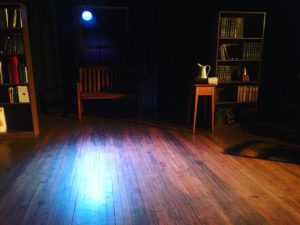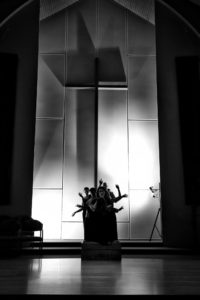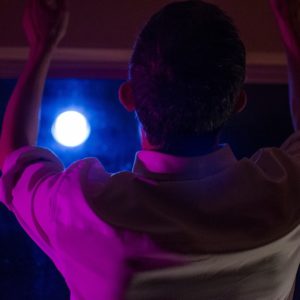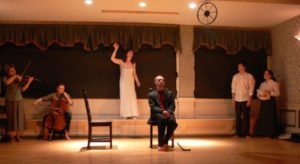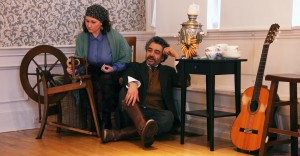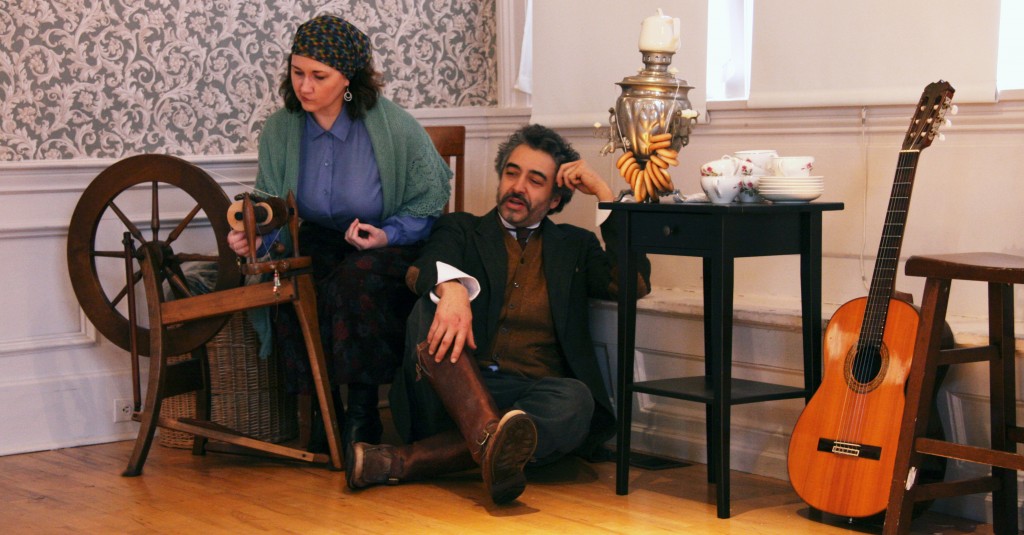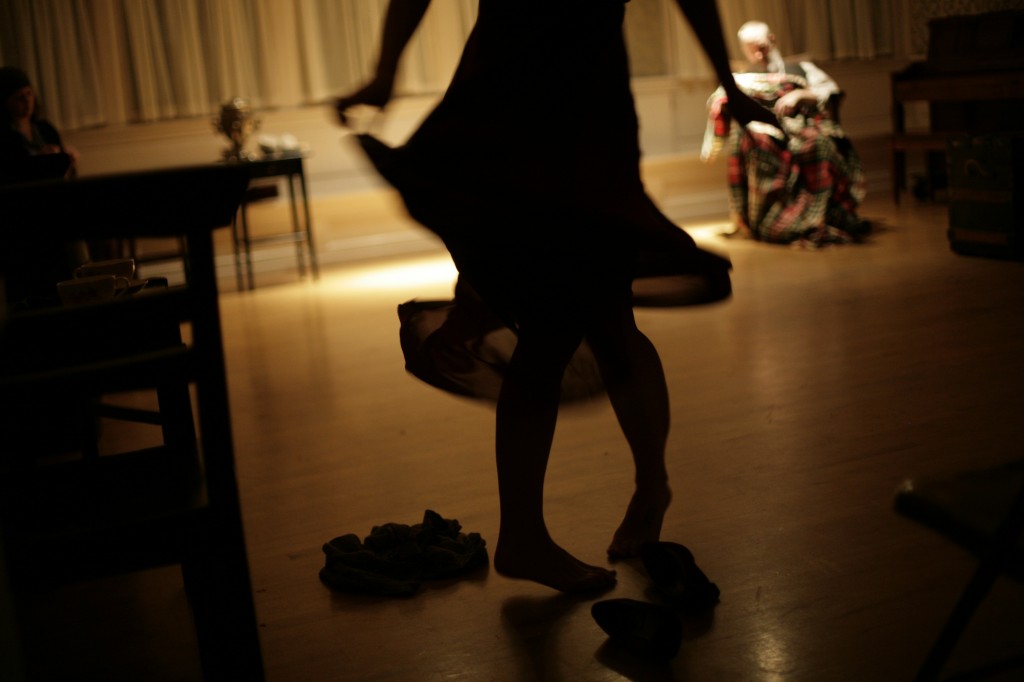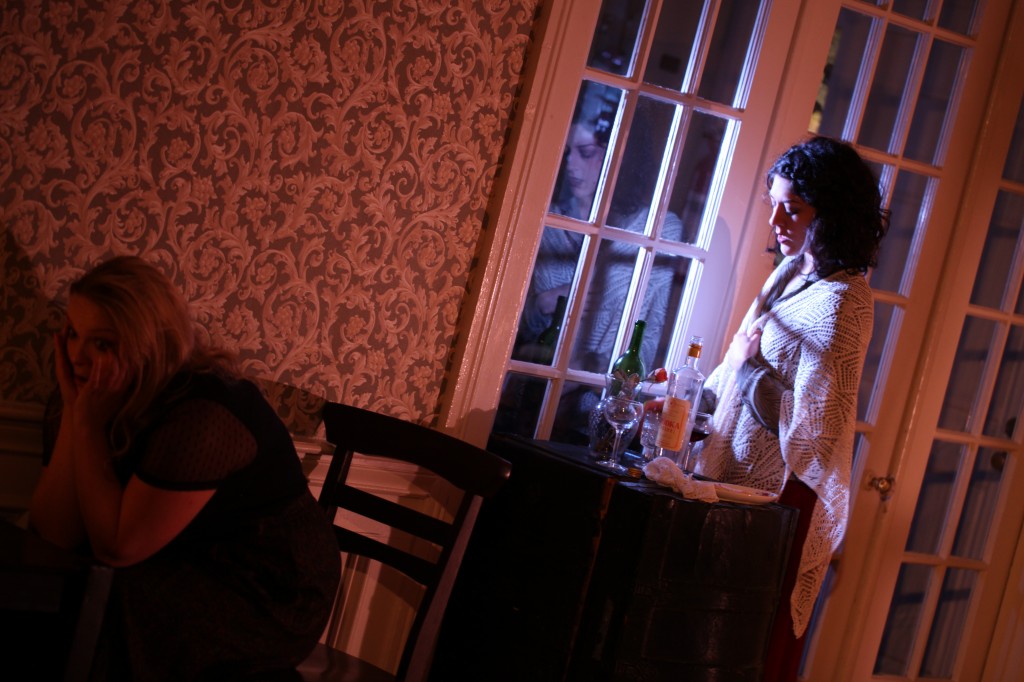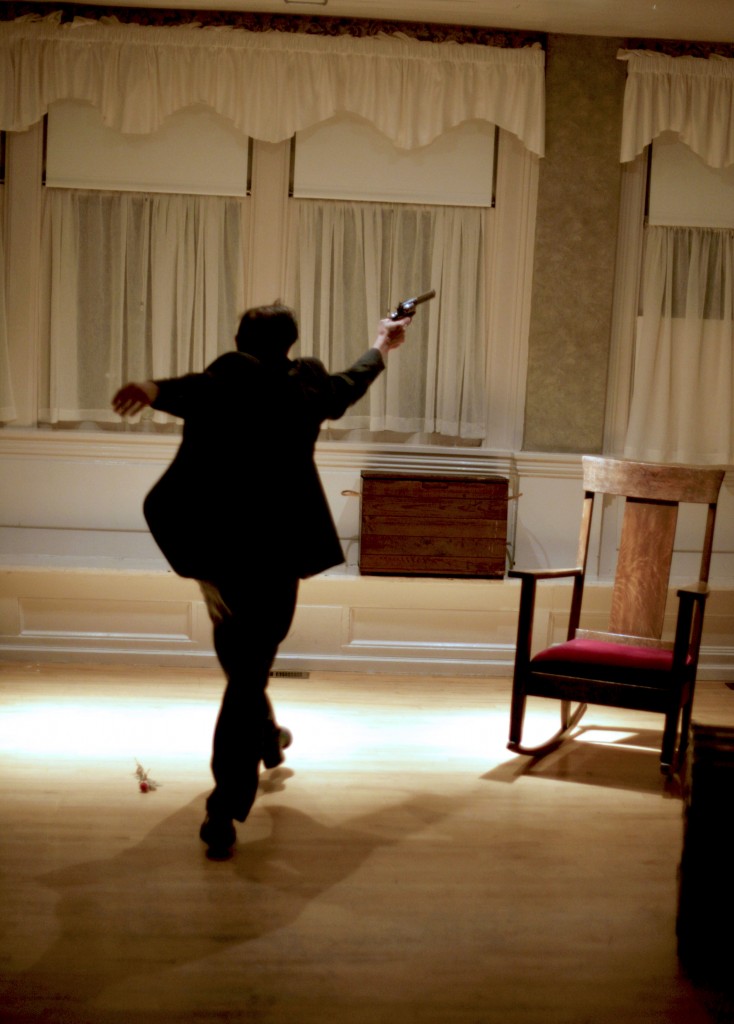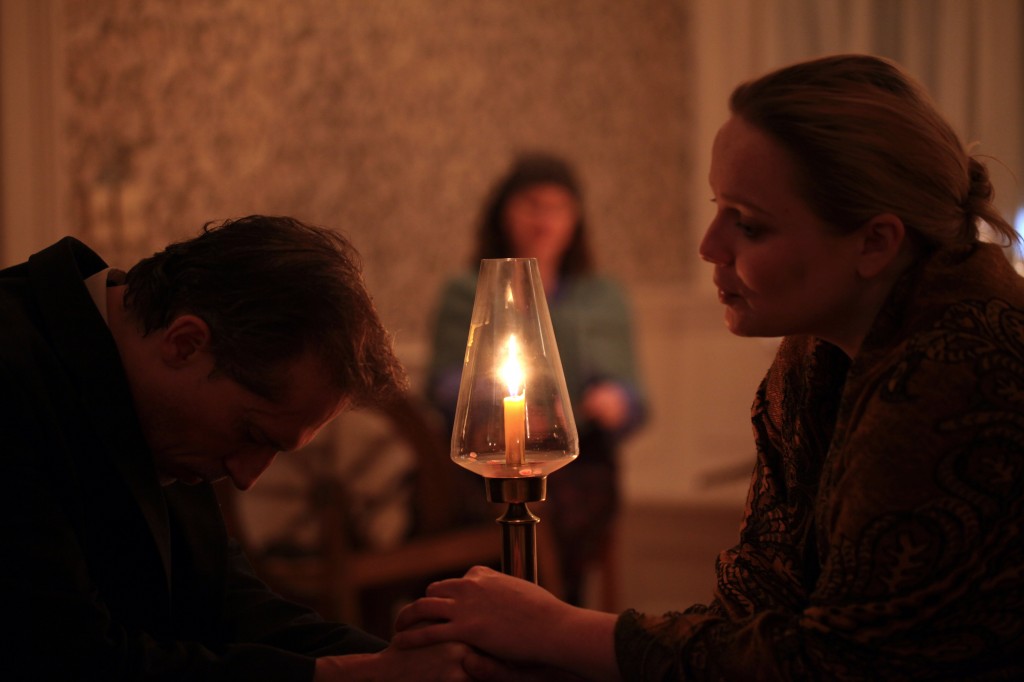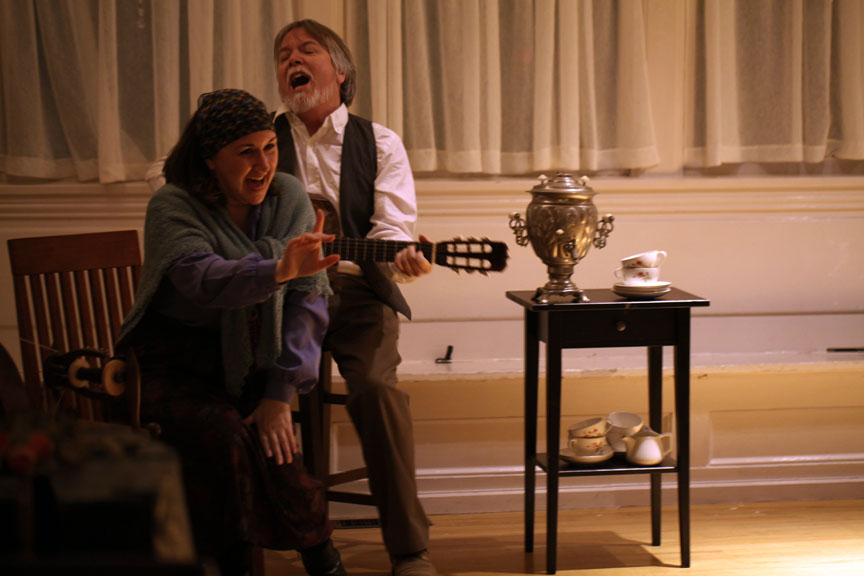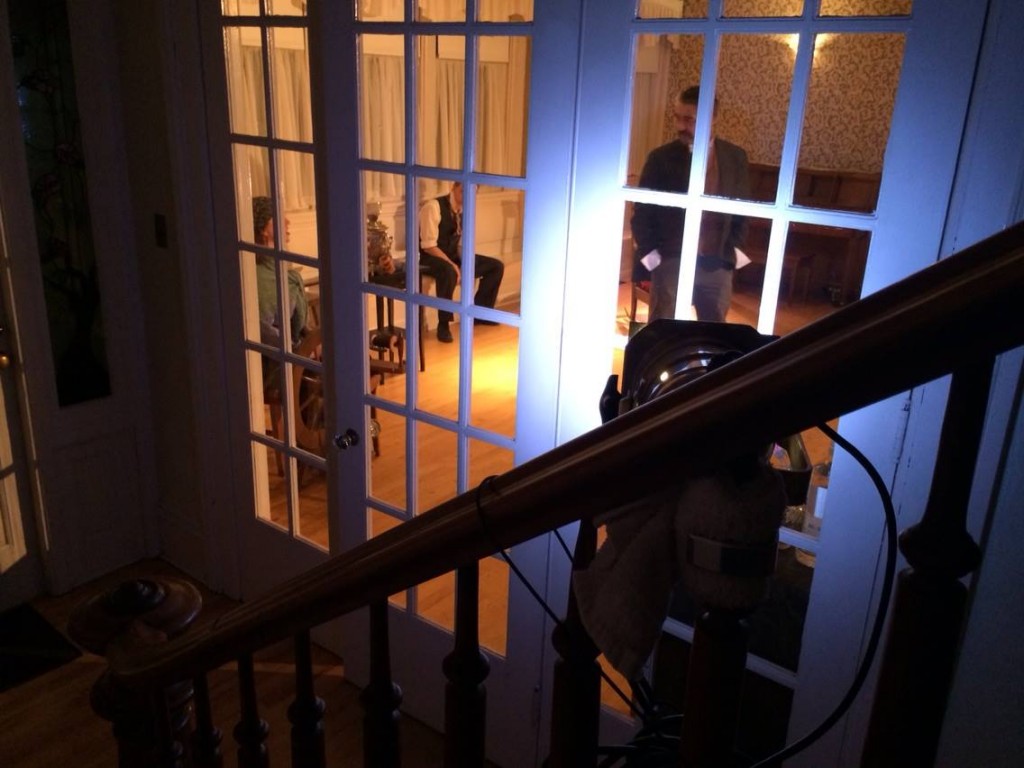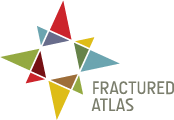Visual design is a critical factor in the composition of every Akropolis Performance Lab piece. We are very deliberate in the selection of each element brought in to enhance both the work of the actors and the experience of the spectators, with particular attention not only to cohesion within the production itself, but consistency to the aesthetic principles we’ve developed over nearly 20 years and which form a foundational, minimalist through-line for our entire body of work.
For the last 10 years or so – in addition to directing – I have acted as scenographer for our productions, in collaboration with our Artistic Associates; determining the scenic, lighting, and costume designs. This throws off some people, who question why no designers are credited, and who wonder if that means we just pull these things together with less emphasis than we place on the acting and dramaturgy. Of course, nothing could be further from the truth. Every detail of an APL production is a carefully considered aspect of the dramaturgy, approached with equal importance.
This year, we are bringing in designers once again for 730 Steps, prompting me to put into writing those guiding aesthetic principles, so they can be shared and understood by our new partners. And while they are specifically geared toward design in this form, these are the same fundamental principles which guide all aspects of our creative work.
20 Principles for APL Design
- Use as little as possible, but of the best quality possible
- based on money, availability, & time
- The space is always what it is. The design happens within and in relationship to the-space-itself
- Exploit the difficulties and flaws, don’t try to hide them
- Don’t provide the spectator with answers. Give them just enough to recognize the questions and draw their own conclusions
- Use Real Objects, unless unobtainable
- Fabricated Objects should be made with the highest degree of craftsmanship and “real world” permanence
- Theatrical Facsimiles are not acceptable
- Everything on stage should be practical. Question anything that is purely decorative
- Everything should be able to serve multiple functions
- As it is
- As it could be
- As it has never been before
- Everything should be able to serve multiple functions
- No electronic or recorded sound effects. All sound created by the performers
- No Technical Special Effects (fog, strobe, video projection, etc). Whenever possible “stage magic” should be created by the actor or the architecture
- Shadow is at least as valuable as Light
- Before using gobos or other effects, determine whether the same result can be produced by an actor or the architecture interacting with the light
- If not, What is the intent?
- is it indispensable?
- Use unusual angles
- Use color sparingly, to maximum effect
- Use everything sparingly, to maximum effect
- Costumes should never dictate what an actor cannot do
- Actor insight is crucial regarding costumes
- Light, set, and costumes should stimulate the spectator to develop an understanding of people, place, and atmosphere
- Light, set, and costumes should stimulate the actors toward always greater awareness and precision
- Light, set, and costumes should provoke the actor, not solve their problems for them
- No principle is inviolate
- Once conceived, question everything


